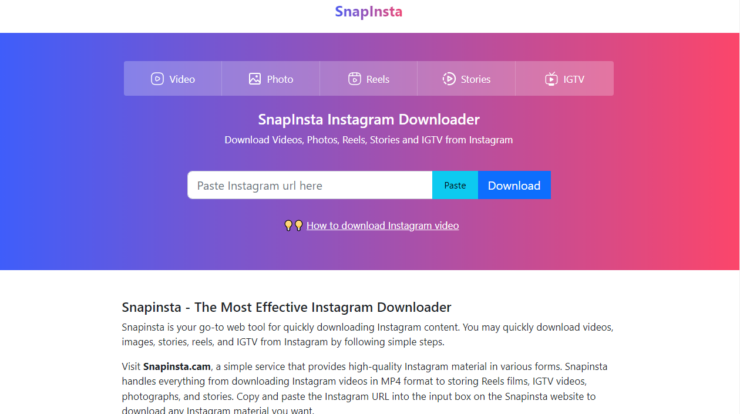
Day trading is fast becoming one of the easiest ways to make an alternate income. With just a few hours or market-watching a day, one can make a substantial income. The only tools you need are knowledge of the market, the ability to study charts, and a reliable broker.
The broker is the agency or platform that works as an intermediary between you and the market. They buy and sell orders from you, and then execute them in the market. This process takes place over a trading-platform or a custom back-end.
The broker also works as an advisor to the buyer. If you are relatively new to day-trading, you will often need help from the broker to understand trading’s finer aspects. If you were to look for a trading broker online, you could be spoiled for choice.
Here are some of the critical aspects that define a good broker. These eight pointers will help you gauge their value and will help make the decision easier.
1. Brokerage Value
The stock brokerage is a fee or a commission that the broker will charge to the user for using the platform. This price is based on the trade-order amount and fixed at a percentage value. For example, if the brokerage is 4% — the broker will take four percent of the final buy/sell price.
This commission value can substantially affect your final profits, and thus it’s essential to check this number beforehand. In recent times, the concept of zero-brokerage trading is very popular. Ideally, find a platform that can offer you this deal.
2. Platform Fluidity
The fluidity of the platform is what defines its utility. By fluidity, we mean the availability of resources and the room to perform day-trading with ease. All brokers come with an e-trading platform that offers certain features that help you buy and sell shares.
The need for a good market watch, custom-made lists, glitch-free design, fast speed execution, charts, etc. are some of the must-have features in a broker platform. Some platforms come with a built-in design that does not allow you to set up a market-watch to your comfort. This rigidity could be a disadvantage in the long run.
3. Service Costs
Apart from broker costs, there are many other costs that a broker enforces. This amounts to service costs that help the broker keep their platform afloat. Some brokers take an annual or monthly maintenance fee; others change individual prices for setup and support.
There is also the cost of opening loans and mutual funds from the DEMAT account. Some platforms also demand a necessary deposit amount to set up the account.
All of these costs will accumulate over time and could cost you your profits. Ask the broker to give you a full list of additional expenses before you sign up.
4. Customer Support Network
Sound customer-support is very important with day-trading. A small error, server problem, or a delay can cost you enormous amounts of money.
It would be best if you found out how one reaches the broker in case of any issues. If they have a phone-support network, find out their response time.
Some brokers also offer phone services to perform trades. This is when you do not trade using the platform but call a respective to make the buy/sale. If you think you will profit with the help of the broker, it only makes sense to understand their service quality in advance.
Sometimes you might need help from your broker to understand complex trade conditions like a wash sale, or the delay of a dividend, etc. In this case, the broker should provide guidance. To know more about wash sales, check out the post right here.
5. User Reviews
The best way to understand the advantages and disadvantages of a platform is by studying user reviews. While this might seem like an obvious option, it is ignored by many. Read the trading-application reviews on the application store, (like Google’s Play Store, or Apple’s App Store) for the most unbiased reviews.
If you follow a market expert, find out what trading platform they use and read their reviews. Additionally, if you learn day-trading from a specific individual, use the same broker platform as them.
6. Understand the Field Of Investment
While day-trading involves securities or shares, a large volume of the market would like to invest their money into a long-term trade. It wouldn’t be wise to open a different broker account for long-term investments. The broker should strike a balance between the two forms.
These could be in retirement accounts, bonds, FDICS, insurance policies, savings accounts, etc. While doing your research, you might not consider these other limbs of investments.
7. Safety and Security Features
We would be remiss to ignore the security of your money while making significant investments. The user reviews are the best way to determine if the broker has any foul play history or any discrepancies.
Additionally, the platform should have top-of-the-line features like data encryption, two-factor authentications, time-sensitive passwords change demands, etc. Also, find out if the company is selling or distributing your details to any affiliate brands or agencies.
The broker is your companion in trading, and finding a trustworthy option is always step one.
8. Charting Abilities
Charts are the spine of day-trading. Without these, it is impossible to detect spikes or understand market fluctuations.
Charts like the bar-charts and the candle-stick charts will help you determine the movement of the stock value. A built-in graph allows you to detect an opportunity and make the action immediately.
A platform that does not offer charts will need you to view them on a third party application and then return to the broker to execute the trade. This process is both time-consuming and will yield inaccurate results.
Final thoughts,
Before you pick the right broker, you should also understand your investment patterns. This means you should be sure about your trading style, your investment, and your commitment. Finding the right broker is not the only first step.
Once you know your trade-inclinations — the right platform will be easier to narrow down.



